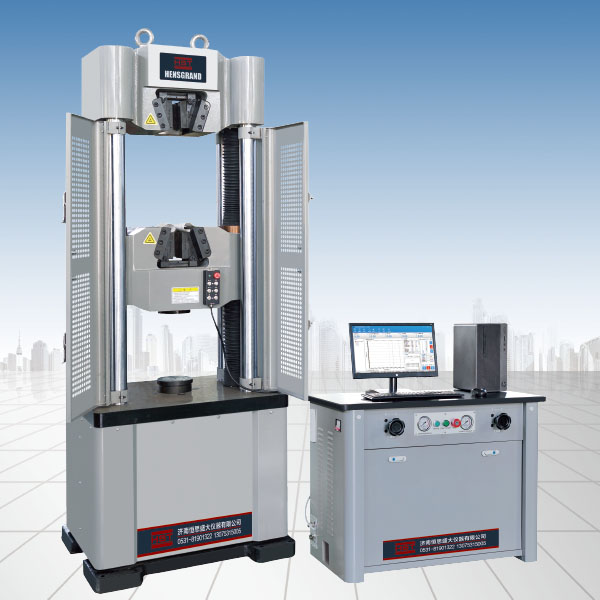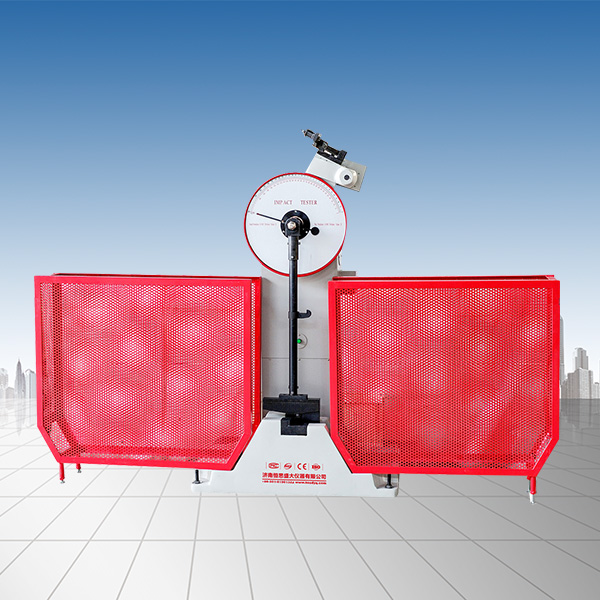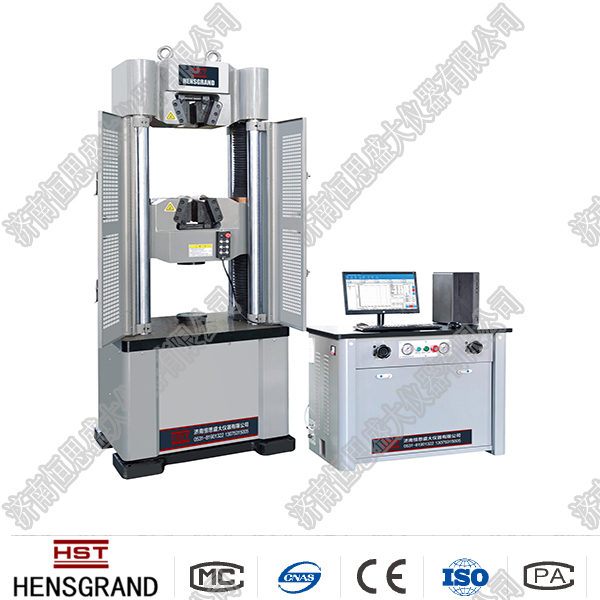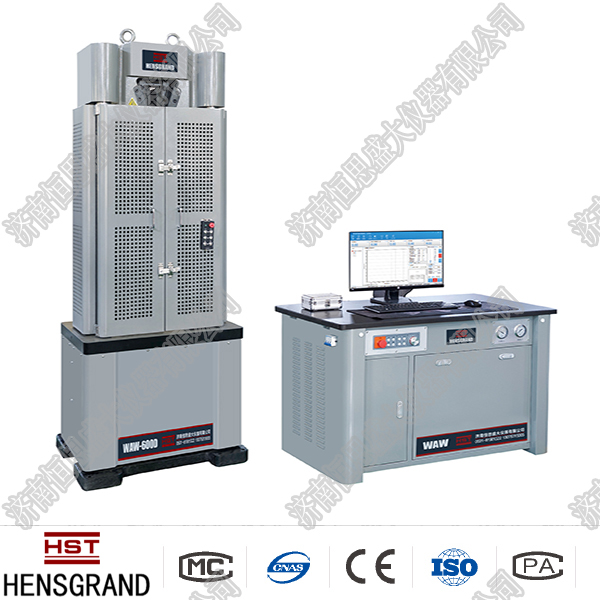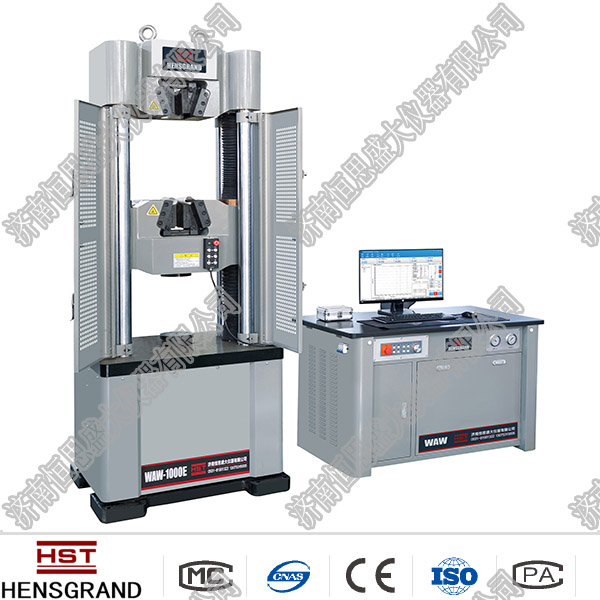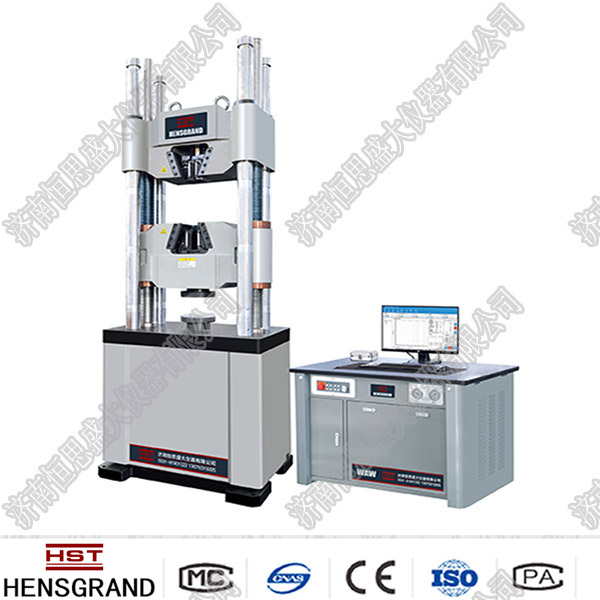Industry Information
What are the types of tensile testing machines?
Release time:2018-11-23 source:Jinan Hengsi Shanda Instrument Co., Ltd. Browse:
Tension testerIt is usually called a material testing machine and a universal testing machine. It is a precision detection instrument that uses mechanical afterburner to conduct mechanical properties tests such as tensile, compression, bending, shear, and peeling on materials. Its use a wide range of industries and is an indispensable testing equipment for material development, physical properties testing, teaching research, quality control, feed inspection, and random inspection of production lines. The classification methods of tensile testing machines are as follows:
1. According to the control system, it can be divided into
1. Inverter system tensile testing machine: adopts a variable frequency motor control system, and the tensile and compression speeds are controlled by the inverter speed regulator.
2. Servo system tensile testing machine: adopts a servo motor control system, and the tensile, compression speed and displacement control are more accurate. The servo motor system is a servo control system and uses intelligent feedback computing, which can be used to speed test, cycle test, programming test, etc.
3. Other driving tensile testing machine: Through DC motor control, the driving tensile testing machine has been gradually eliminated due to its low cost performance.
2. According to the industry and functional characteristics, it can be divided into
1. Metal tensile testing machine: The metal material has a large tensile strength and a small elongation. It is necessary to install a metal punctuation extensometer.
2. Rubber tensile testing machine: The elongation of rubber or elastomer is relatively large and needs to be accompanied by a large punctuation elongation device. At the same time, the design of the fixture should take into account the characteristics suitable for rubber and should not slip. O-ring fixtures, tire industry installation fixtures, etc. can be added.
3. Plastic tensile testing machine: The tensile strength of plastic is greater than that of rubber, and the elongation is greater and smaller, and three-point bending tests are often tested.
4. Textile tensile testing machine: The textile industry needs to test fabric peeling, puncture, tearing, single yarn tensile testing, etc., and the fixtures and software are relatively special.
5. Paper tensile testing machine: Paper needs to test tensile strength, ring pressure strength, vertical pressure, flat pressure, side pressure, peel strength, etc., and there are many fixtures.
6. Leather tensile testing machine: Leather needs to test tensile strength, tear strength, etc., and the test project is relatively simple.
3. According to the degree of automation, it can be divided into
1. Pointer type tensile testing machine: This traditional tensile testing machine has been basically eliminated by digital explicit tensile testing machine due to its low test accuracy and low cost performance. However, within the range of small forces, it is our common tensile gauge, which is often used by factories for simple force testing of small products. Because of its low price, it is still very popular.
2. Digital explicit tensile testing machine is also called microcomputer tensile testing machine: the test data is directly displayed on the LCD screen, the test items are relatively fixed, and are often used in factory quality control.
3. Computer system tensile testing machine: It is universalTension tester, Since the test data is collected through the computer, and then calculated by the software program to obtain the final data that the user wants, and can be printed out through reports. Commonly used in scientific research institutions, testing institutions, new product development, etc.
- Previous article:Future development trends of material testing machine fixtures
- Next article:Detailed description of the impact test process
Recommended productsPRODUCTS


















